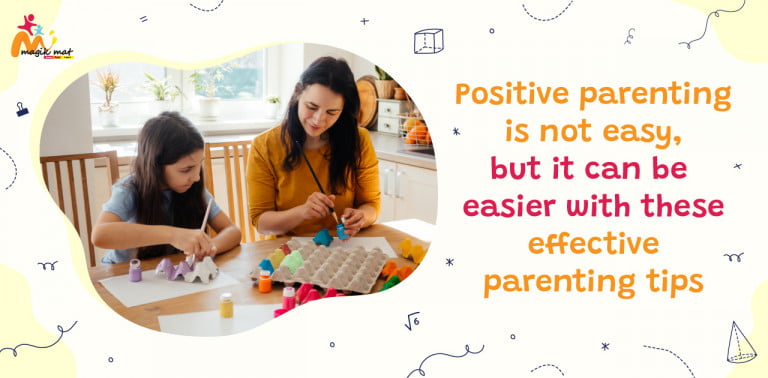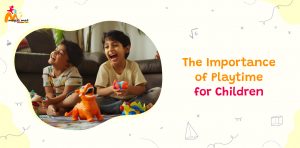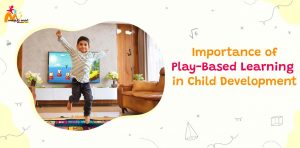When it comes to parenting, there are several approaches you may find yourself choosing from during different stages of your child’s development. Many positive outcomes can be attributed to good parenting and one of the most important things is trying your best to implement a method that works well for you while also considering your unique situation as a parent.
Some basic parenting skills seem to take a flying leap off the quality scale, but what is most important and interesting to note here is that all parents want their children to be happy, healthy, and well-balanced individuals.
Identifying and refining positive parenting skills might be time-consuming, but the outcome of identifying and executing the importance of parenting skills when paired with the right tools and a bundled amount of patience might surprise you.
Build these Positive Parenting Skills and be The Best Parent That You Can Be.
- Love and Affection
Showing love to your children is the number one factor that predicts good parenting outcomes. This includes unconditional love, support and acceptance; spending quality time with your kids. Also, let them learn from their mistakes and be there to help pick up after their messes – this helps build their independence. It’s important for children to feel comfortable expressing themselves completely in front of their parents because that helps build open two-way communication channels between the parent and child which makes for stronger relations overall!
- Stress Management
It’s important to not only practice stress management on your own but also teach your child stress and relaxation techniques. In a world where children are constantly being analyzed based on their test scores, performance in extracurricular activities, the principles of mindfulness provide the necessary tips for the children to cope with excessive pressures in the present-day competitive society.
- Relationship Skills
Mastering this skill makes your kid succeed and lead an emotionally balanced social life. Socializing doesn’t mean constantly making them visible on social media but making sure that you pay attention to what they have to say and their body language. Ask yourself why they might be upset meeting new people before assuming it has something to do with them. The best solution is sitting down together and speaking about what’s bothering them, otherwise if left alone, those little issues will slowly pile up and fester which can quickly lead to your kid’s inactive social life. Success in this area means your kid maintains healthy relationship skills with other people. In doing so, your kids will get to know that everyone is important to everyone!
- Autonomy and Independence
The most important thing for parents to remember is to let their children’s individual strengths shine through by fostering independence, as this lets every child feel empowered and encouraged to shoulder responsibility. Thus, it boosts their confidence in pursuing something new on their own. Children who feel satisfied with themselves notice healthy progress in everything that they do.
- Education and Learning
As a parent you will enjoy seeing your children excel and enjoy learning. There are many ways for parents to instill a love of learning in their children. And the best way parents can ensure that their kids maintain an interest in education is by giving them the time and space to discover what they’re naturally drawn or talented towards, the best way to teach them what it means to be lifelong learners is by providing an active and healthy learning atmosphere because teaching children to be lifelong learners begins at home.
- Life Skills
As a parent you hope to be able to provide for the well-being of your child and plan for the future to give them everything they will ever need. You should be focusing on right now and what needs to be done. In this case, planning for your child’s future also entails showing them how to deal with obstacles and challenges, which helps influence their ability to be resilient. This includes teaching your child how to overcome obstacles in their life – and not only survive but thrive.
- Behavioral Management
Use positive discipline methods to help your kids grow up as responsible adults. Much has been said about parenting and the best way to do it – from strict methods to others that seem more relaxed. It can get confusing at times trying to find a way of raising your child productive for you and still enjoyable for them as well. One method is to give your child the feeling that they have a sense of belonging by setting appropriate expectations right from their early steps and sticking to them. Avoid yelling and harsh verbal reprimands because these tend to damage young adults emotionally while they attempt to figure out who they are, what they believe in, their strengths and their weaknesses.
What can you do to cultivate good parenting skills?
Follow these essential parenting attributes to cultivate positive parenting and help your kids to navigate and move forward in the World!!!
- Practice active listening
- Offer choices when possible
- Teach them how to express their feelings
- Make time for your child
- Avoid yelling, shaming and labelling
- Assign age-appropriate chores
- Be consistent with discipline
- Acknowledge and validate their feelings
- Separate the actions (A behavior is bad; a child isn’t bad)
- Practice positive discipline
- Make a positive comment when you catch your child doing something right
Parenting skills assessment
- Start by assessing where you currently stand.
- Make a list of all positive parenting skills listed above.
- Rank each one point on a scale of 1 to 10 to know your current positive impact on your child.
- Now it’s time to assess your child’s needs.
- Make a second list of all the parenting skills listed above.
- Rank each one on a scale of 1 to 10 for what most benefits your child right now.
You might have already been using many of the good parenting tips or parenting skill activities, but if you feel like you have more questions about positive parenting tips or you feel like your kid needs more attention than you give talk to your child’s pediatrician or child psychologist to ensure a safe and enjoyable childhood to your loved little ones.





